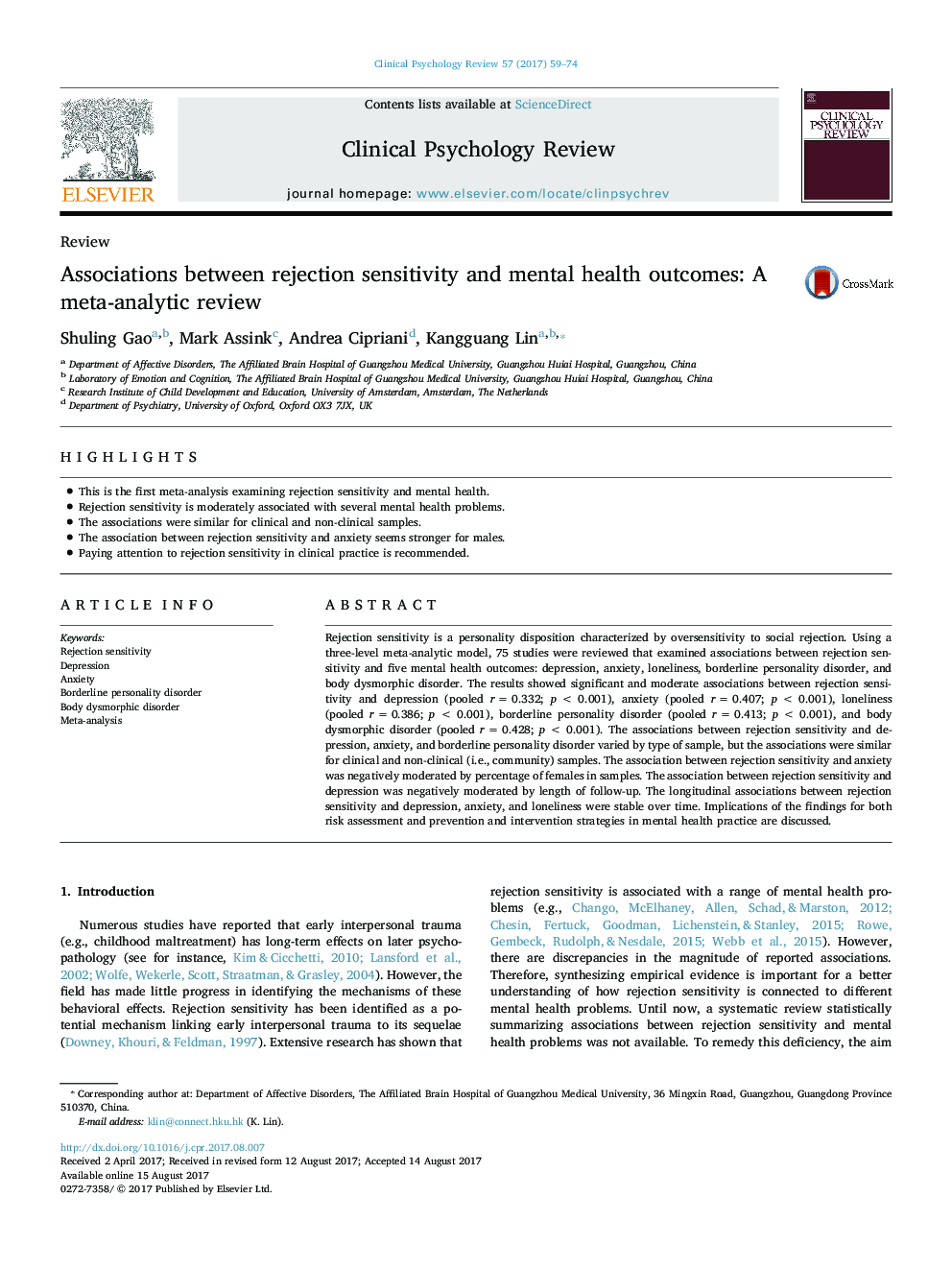| Article ID | Journal | Published Year | Pages | File Type |
|---|---|---|---|---|
| 5038443 | Clinical Psychology Review | 2017 | 16 Pages |
â¢This is the first meta-analysis examining rejection sensitivity and mental health.â¢Rejection sensitivity is moderately associated with several mental health problems.â¢The associations were similar for clinical and non-clinical samples.â¢The association between rejection sensitivity and anxiety seems stronger for males.â¢Paying attention to rejection sensitivity in clinical practice is recommended.
Rejection sensitivity is a personality disposition characterized by oversensitivity to social rejection. Using a three-level meta-analytic model, 75 studies were reviewed that examined associations between rejection sensitivity and five mental health outcomes: depression, anxiety, loneliness, borderline personality disorder, and body dysmorphic disorder. The results showed significant and moderate associations between rejection sensitivity and depression (pooled r = 0.332; p < 0.001), anxiety (pooled r = 0.407; p < 0.001), loneliness (pooled r = 0.386; p < 0.001), borderline personality disorder (pooled r = 0.413; p < 0.001), and body dysmorphic disorder (pooled r = 0.428; p < 0.001). The associations between rejection sensitivity and depression, anxiety, and borderline personality disorder varied by type of sample, but the associations were similar for clinical and non-clinical (i.e., community) samples. The association between rejection sensitivity and anxiety was negatively moderated by percentage of females in samples. The association between rejection sensitivity and depression was negatively moderated by length of follow-up. The longitudinal associations between rejection sensitivity and depression, anxiety, and loneliness were stable over time. Implications of the findings for both risk assessment and prevention and intervention strategies in mental health practice are discussed.
